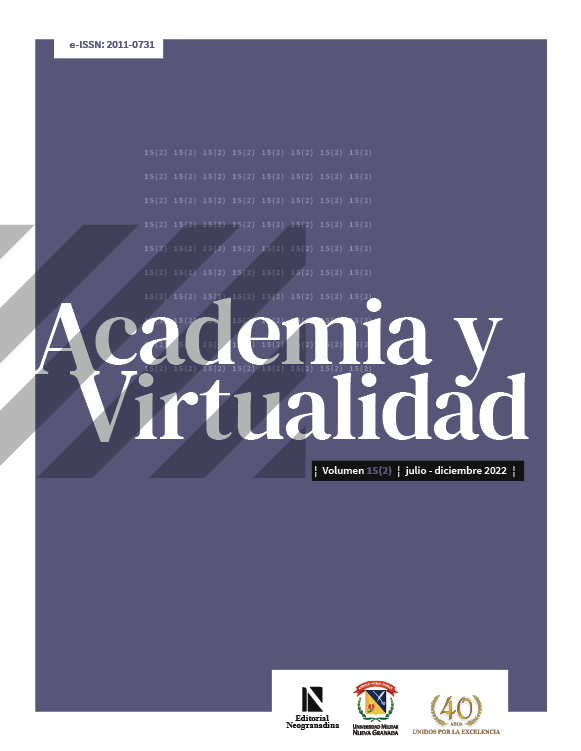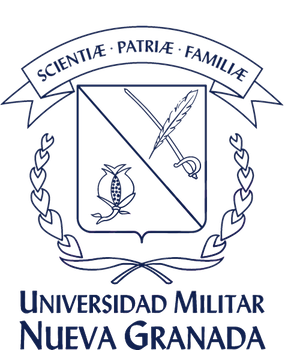Systematic mapping of the literature on online in-service teacher education
Abstract
Online continuing teacher education (FeLD) is a modality that has been gradually gaining acceptance internationally in this century. In order to recognize what research has contributed to quality online teacher education, this study aimed to characterize the academic production published in the period from 2010 to 2020 on online teacher education, through the systematic literature mapping method. The study was developed in six steps, organized in three phases: (phase 1) design and selection of the works included in the mapping, (phase 2) preparation and organization of meta- data, and (phase 3) content analysis. Twenty-two scientific articles were included in the mapping. The publication trend is presented according to time, language, geographic location and journals; the names applied to FeLD, the objects of study, research methodologies, types of training programs and the characteristics of quality online training identified in each study were also analyzed. The con- clusion reached is that the results are useful for making decisions as to what needs to be researched and how to do it. This will allow further educational research to confirm whether the online environ- ment is a tool with the expected potential for professional teacher development.
Downloads
References
Alswiti, W., Alqatawna, J., Al-Shboul, B., Faris, H. y Hakh, H. (2016, agosto). Users profiling using clickstream data analysis and classification. Cybersecurity and Cyberforensics Conference. DOI: https://doi.org/10.1109/CCC.2016.27
Banco Mundial. (2020). World Bank Country and Lending Groups. https://datahelpdesk.worldbank.org/knowledgebase/articles/906519-world-bank-country-and-lending-groups
Barbour, M. K., LaBonte, R., Kelly, K., Hodges, C., Moore, S., Lockee, B., Trust, T., Bond, A. y Hill, P. (2020, diciembre). Understanding Pandemic Pedagogy: Differences Between Emergency Remote, Remote, and Online Teaching. Canadá: Canadian eLearning Network. https://vtechworks.lib.vt.edu/handle/10919/101905
Bates, T. (2010). New Challenges for Universities: Why They Must Change Ehlers, UD y Schneckenberg, Changing Cultures In Higher Education: Moving Ahead To Future Learning. Berlín: Springer-Verlag. DOI: https://doi.org/10.1007/978-3-642-03582-1_2
Bates, T. (2015). La enseñanza en la era digital. Una guía para la enseñanza y el aprendizaje. Asociación de Investigación Contact North | Contact Nord. https://www.google.com/url.
Brooks, C. y Gibson, S. (2012). Professional Learning in a Digital Age. Canadian Journal of Learning and Technology, 38(2). https://eric.ed.gov/?id=EJ981798 DOI: https://doi.org/10.21432/T2HS3Q
Castañeda, K. D. y Vargas, A. M. (2021). En tiempos de pandemia: una mirada retrospectiva sobre la educación a distancia, virtual y remota de emergencia, así como sobre las buenas prácticas docents. Academia y virtualidad, 14(1), 13-22. DOI: https://doi.org/10.18359/ravi.5346
Collins, L. J. y Liang, X. (2015). Examining High Quality Online Teacher Professional Development: Teachers' Voices. International Journal of Teacher Leaders- hip, 6(1). https://eric.ed.gov/?id=EJ1137401
Cordero, G. (2020, noviembre 19). Políticas, programas y gestión de la formación continua [Conferencia]. Ciclo Iberoamericano Mejoredu OEI. https://www.youtube.com/watch?v=77z_2DWd0C0&t=3561s
Dede, C. y Eisenkraft, A. (2016). Online and Blended eacher Learning and Professional Development. En C. Dede, A. Eisenkraft, K. Frumin y A. Hartley, Teacher Learning in the Digital Age. Online Professional Development in STEM Education. https://books.google.com.mx/books?id=GqZhDwAAQBAJ&pg=PT403&lpg=PT403&dq=chris+dede+otpd&source=bl&ots=zpSzNlm5NM&sig=ACfU3U0Ah0QCi5EuJxrBOvoaQsOUwg81Gg&hl=es&sa=X&ved=2ahUKEwjx2-aZqobnAhWuJTQIHZFfDNgQ6AEwBHoECAoQAQ#-v=onepage&q=chris%20dede%20otpd&f=false
Dede, C., Jass, D., Whitehouse, P., Breit, L. y McCloskey, E. (2009, enero). A research agenda for Online Teacher Professional Development. Journal of Teacher Education, 60(1). https://www.researchgate.net/publication/242766311_A_Research_Agenda_for_Online_Teacher_Professional_Development. DOI: https://doi.org/10.1177/0022487108327554
Díaz, S. Díaz, J. y Arango-López, J. (2018). Clases de historia en mundos virtuales: ¿cómo podemos mejorarlo? Campus Virtuales 7(2). http://www.uajournals.com/campusvirtuales/journal/13/7.pdf
Gárate, M. y Cordero, G. (2019, enero). Apuntes para caracterizar la formación continua en línea de docentes. Revista de Estudios y Experiencias en Educación, 18(36), 209-221. DOI: https://doi.org/10.21703/rexe.20191836garate10
García Aretio, L. (2001). "Educación a distancia; ayer y hoy". En F. Blázquez (Coord.), Sociedad de la información y educación (pp. 160-193). Junta de Extremadura. https://www.researchgate.net/publication/260026102_Educacion_a_distancia_ayer_y_hoy
García Aretio, L. (2017). Educación a distancia y virtual: calidad, disrupción, aprendizajes adaptativo y móvil. Revista Iberoamericana de Educación a Distancia, 20(2), 9-25. DOI: https://doi.org/10.5944/ried.20.2.18737
Guskey, T. (2002, marzo). Does It Make a Difference? Evaluating Professional Development. Educational leadership, 59(6). http://www.ascd.org/publications/educational-leadership/mar02/vol59/num06/Does-It-Make-a-Difference%C2%A2-Evaluating-Professional-Development.aspx
Holmes, A., Signer, B. y MacLeod, A. (2011). Professional Development at a Distance: A Mixed-Method Study Exploring Inservice Teachers' Views on Presence Online. Journal of Digital Learning in Teacher Education, 27(2). https://www.learntechlib.org/p/55487/ DOI: https://doi.org/10.1080/21532974.2010.10784660
Imbernón, F. y Canto, P. (2013). La formación y el desarrollo profesional del profesorado en España y Latinoamérica. Sinéctica (41). http://www.scielo.org.mx/scielo.php?script=sci_arttext&pid=S1665-109X2013000200010
Kirkpatrick, D. y Kirkpatrick, J. (2007). Evaluación de acciones formativas: los cuatro niveles. Barcelona: Gestión 2000.
Ministerio de Educación y Formación Profesional. (2019).
Talis 2018. Estudio internacional de la enseñanza y del aprendizaje. Informe español. Madrid: Autor.
Montiel, G. (2010, diciembre). Hacia el rediseño del discurso: formación docente en línea centrada en la resignificación de la matemática escolar. Revista Latinoamericana de Investigación en Matemática Educativa, 13(4-I). https://www.redalyc.org/pdf/335/33529137005.pdf
Navarro, C. y Ramírez, M. (2018). Mapeo sistemático de la literatura sobre evaluación docente (2013-2017). Educação e Pesquisa, 44. http://www.scielo.br/scielo.php?script=sci_arttext&pid=S1517-97022018000100498. DOI:
https://doi.org/10.1590/s1678-4634201844185677
Organización Mundial de la Salud. (2020). https://www.paho.org/es/noticias/11-3-2020-oms-caracteriza-covid-19-como-pandemia
Organización para la Cooperación y el Desarrollo Económicos. (2009). Creating Effective Teaching and Learning Environments. First Results from TALIS. OECD Publishing. http://www.oecd.org/education/school/43023606.pdf
Organización para la Cooperación y el Desarrollo Económicos. (2014). Talis 2013. Results: An International Perspective on Teaching and Learning. OECD Publishing. DOI: https://doi.org/10.1787/9789264196261-en
Organización para la Cooperación y el Desarrollo Económicos. (2019). Talis 2018 Results (Volume I). Teachers and School Leaders as Lifelong Learners. OECD Publishing. https://www.oecd-ilibrary.org/education/talis2018-results-volume-i_1d0bc92a-en
Organización para la Cooperación y el Desarrollo Económicos. (2020, marzo). Respuestas educativas a Covid-19: Adoptar el aprendizaje digital y la colaboración en línea. https://read.oecd-ilibrary.org/view/?ref=1060_1060336-044k39aej9&title=Respuestas-educativas-a-COVID-19
Renninger, K., Cai, M., Lewis, M., Adams, M. y Ernst, K. (2011, febrero). Motivation and learning in an online, unmoderated, mathematics workshop for teachers. Educational Technology Research & Development, 59(2), 229-247. DOI: https://doi.org/10.1007/s11423-011-9195-4
Rosas, L. (2000). La formación de maestros, un problema planteado. Sinéctica (17). https://www.redalyc.org/pdf/998/99817933002.pdf
Sangrà, A., Estévez, I. y Souto-Seijo, A. (2019). Desarrollo profesional docente a través de las ecologías de aprendizaje: perspectivas del profesorado. Edutec. Revista Electrónica de Tecnología Educativa, 68. https://www.edutec.es/revista/index.php/edutec-e/article/view/1307. DOI: https://doi.org/10.21556/edutec.2019.68.1307
Teixeira, A., Bates, T. y Mota, J. (2019). What future(s) for distance education universities? Towards an open network-based approach. RIED, Revista Iberoamericana de Educacion a Distancia, 22(1), 107-126. DOI: https://doi.org/10.5944/ried.22.1.22288
Vezub, L. (2007). La formación y el desarrollo profesional docente frente a los nuevos desafíos de la escolaridad. Profesorado. Revista de Currículum y Formación de Profesorado, 11(1). https://www.redalyc.org/pdf/567/56711102.pdf
Prestridge, S. (2016). 24/7 Empowered Learning in Socially Networked Spaces for Teacher Professional Development. Journal of Current Issues in Media & Telecommunications, 8(2), 155-183. http://search.ebscohost.com/login.aspx?direct=true&db=ufh&AN=132845584&lang=es&site=ehost-live
Ostashewski, N., Moisey, S. y Reid, D. (2011). Applying Constructionist Principles to Online Teacher Professional Development. International Review of Research in Open and Distance Learning, 12(6), 143-156. DOI: https://doi.org/10.19173/irrodl.v12i6.976
McCloskey, E. M. (2012). Docentes globales: un modelo para el desarrollo de la competencia intercultural on-line. Comunicar, 19(38), 41-49. DOI: https://doi.org/10.3916/C38-2012-02-04
Rasmussen, C. L. y Byrd, D. R. (2016). Evaluating Continued Use of an Online Teacher Professional Development Program with a Sustained Implementation Scale. Journal of Online Learning Research, 2(2). https://eric.ed.gov/?id=EJ1148611
Collins, L. J. y Liang, X. (2015). Examining High Quality Online Teacher Professional Development: Teachers' Voices. International Journal of Teacher Leadership, 6(1). https://eric.ed.gov/?i-d=EJ1137401
Rice, M. F. (2017). Few and Far Between: Describing K-12 Online Teachers' Online Professional Development Opportunities for Students with Disabilities. Online Learning, 21(4). https://eric.ed.gov/?id=EJ1163611 DOI:https://doi.org/10.24059/olj.v21i4.1274
Cho, M.-H. y Rathbun, G. (2013). Implementing teacher-centred online teacher professional development (oTPD) programme in higher education: a case study. Innovations in Education & Teaching International, 50(2), 144-156. DOI: https://doi.org/10.1080/14703297.2012.760868
Riel, J., Lawless, K. A. y Brown, S. W. (2016). Listening to the Teachers: Using Weekly Online Teacher Logs for ROPD to Identify Teachers' Persistent Challenges When Implementing a Blended Learning Curriculum. Journal of Online Learning Research, 2(2). https://papers.ssrn.com/sol3/papers.cfm?abstract_id=2820338
Renninger, K., Cai, M., Lewis, M., Adams, M. y Ernst, K. (2011). Motivation and learning in an online, unmoderated, mathematics workshop for teachers. Educational Technology Research & Development, 59(2), 229-247. DOI: https://doi.org/10.1007/s11423-011-9195-4
Smith, J. A. y Sivo, S. A. (2012). Predicting continued use of online teacher professional development and the influence of social presence and sociability. British Journal of Educational Technology, 43(6), 871-882. DOI: https://doi.org/10.1111/j.1467-8535.2011.01223.x
Holmes, A., Signer, B. y MacLeod, A. (2011). Professional Development at a Distance: A Mixed-Method Study Exploring Inservice Tea- chers' Views on Presence Online. Journal of Digital Learning in Teacher Education, 27(2). https://www.learntechlib.org/p/55487/ DOI: https://doi.org/10.1080/21532974.2010.10784660
Brooks, C. y Gibson, S. (2012). Professional Learning in a Digital Age. Canadian Journal of Learning and Technology, 38(2). https://eric.ed.gov/?id=EJ981798 DOI: https://doi.org/10.21432/T2HS3Q
Riel, J., Lawless, K. A. y Brown, S. W. (2018). Ti- ming Matters: Approaches for Measuring and Visualizing Behaviours of Timing and Spacing of Work in Self-Paced Online Teacher Professional Development Courses. Journal of Learning Analytics, 5(1), 25-40. DOI: https://doi.org/10.18608/jla.2018.51.3
Reyes-Angona, S. y Fernández-Cárdenas, J. M. (2015). La escritura académica en la formación en línea de docentes de escuelas públicas mexicanas. Revista Electrónica de Investigación Educativa, 17(2). http://redie.uabc.mx/vol17no2/contenido-reyesfdez.html
Zorrilla, M. L., García, O. y Castillo, M. (2013). Formación docente en línea a partir de una estrategia de producción de contenidos para ambientes virtuales de aprendizaje. Apertura. Revista de innovación educativa, 5(2). http://www.udgvirtual.udg.mx/apertura/index.php/apertura/article/view/440/335
Ruiz, W. (2011). El Centro de Capacitación en Educación a Distancia: de la capacitación al desarrollo profesional. Revista Educación, 35(1). https://www.redalyc.org/articulo.oa?id=44018789002 DOI: https://doi.org/10.15517/revedu.v35i1.464
Montiel, G. (2010). Hacia el rediseño del discurso: formación docente en línea centrada en la resignificación de la matemática escolar. Revista Latinoamericana de Investigación en Matemática Educativa, 13(4-I). https://www.redalyc.org/pdf/335/33529137005.pdf
Gárate, M. y Cordero, G. (2019). Apuntes para caracterizar la formación continua en línea de docentes. Revista de Estudios y Experiencias en Educación, 18(36), 209-221. DOI: https://doi.org/10.21703/rexe.20191836garate10
Thi, M. y Murray, J. (2019). Understanding Language Teacher Motivation in Online Professional Development: A Study of Vietnamese EFL Teachers. The Electronic Journal for English as a Second Language, 24(3). http://www.teslej.org/wordpress/issues/volume23/ej91/ej91a1/
Schumaker, J. B., Fisher, J. B., Walsh, L. D. y Lancaster, P. E. (2020). Effects of Multimedia versus Live Professional Development on Teachers' and Students' Performance Related to the Question Exploration Routine. Learning Disabilities Research & Practice, 35(4), 180-200. DOI: https://doi.org/10.1111/ldrp.12232
Ballesteros-Ibarra, M. L., Mercado-Varela, M. A., y García-Vázquez, N. J. (2019). La formación docente en línea: experiencias con MOOCs en Sonora (México). Research in Education and Learning Innovation Archives, (23), 62-79. DOI: https://doi.org/10.7203/realia.23.15903
Elhussain, S. y Khojah, A. (2020). Collaborative reflection on shared journal writing to foster EFL teacher CPD. Cypriot Journal of Educational Sciences, 15(2), 271-281. https://eric.ed.gov/?id=EJ1252646 DOI: https://doi.org/10.18844/cjes.v15i2.4598

Copyright (c) 2022 Academia y Virtualidad

This work is licensed under a Creative Commons Attribution-NonCommercial-NoDerivatives 4.0 International License.











